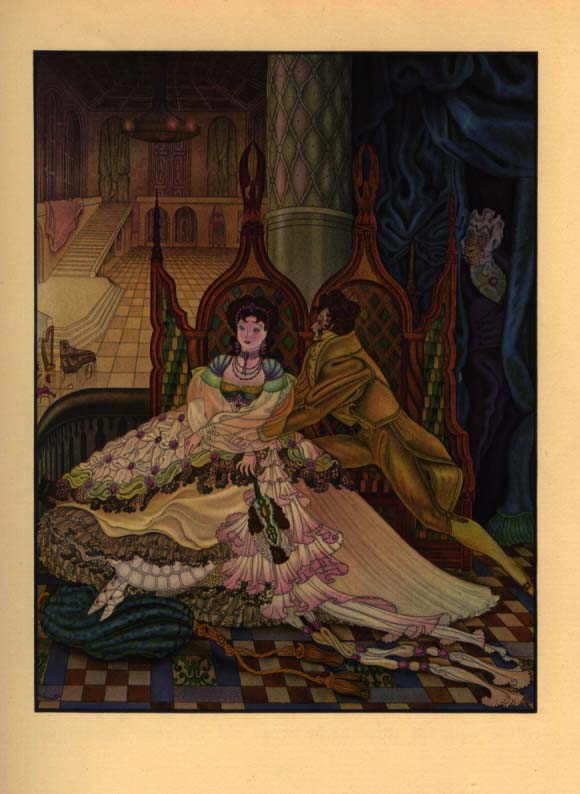✿Part I✿
The opening section to Freud's "The Uncanny" begins with a brief examination of the German translation of the word which is, unheimlich. "The German word unheimlich is obviously the opposite of heimlich meaning "familiar", "native", "belonging to the home"; and we are tempted to conclude that what is "uncanny" (unheimlich) is frightening precisely because it is not known and familiar." (Freud 2) Interestingly, the word heimlich has two definitions, one means 'comfortable' something that is 'at home', but it can also mean something 'hidden' something purposely known of, but kept 'unseen'. Freud uses this paradox as an entry into his main argument that the 'uncanny' emotions we feel, what it is that stirs a disturbance inside of is, usually is aroused not by something new that frightens us, but by things (specifically those of our childhood) we already know of.
✿Part II: The Sand-Man✿
Freud's first example deals with the thin line between what we perceive to be real and unreal, what we see and feel is human and what is really just an inanimate object. "Jentsch has taken as a very good instance "doubts whether an apparently animate being is really alive, or conversely, whether a lifeless object might not be in fact animate"; and he refers in this connection to the impression made by wax-work figures, artificial dolls and automatons." (Freud 5). He gives a summary of Hoffmann's short story 'Sand-Man' which involves the main character, Nathaniel, falling for a life-like doll by the name of Olympia.
Nathaniel & Olympia (x)
Link to a German Silent Film of the Sand-Man (x)
Freud argues that Olympia is not the main "uncanny" element of this short story, but rather it is Nathaniel's fear of losing his eyes to the Sand-Man as he was told by a nanny when he was younger that that was what the Sand-Man did. Freud ties Nathaniel's fear of losing sight to the fear of castration, linking the blinding punishment of Oedipus, the fact that the Sand-Man interferes with Nathaniel's romantic relationship (ultimately causing him to die before he can happily settle down), and the morbid anxiety that comes with the fear of losing vital organs that provide the most important sense, in the case sight and feeling (arousal/sexual attraction). Freud wraps this up by calling the uncanny element of "Sand-Man" to be an infantile fear of the castration-complex and he ventures forth to prove this in other examples as well.
✿Part II: The theme of "Doubles"/The Fear of The Evil Eye✿
Freud goes on to discuss the repetition compulsion, or the uncanny-ness we feel when things happen over and over for example, going around in circles and ending up at the same starting point, or freaky coincidences that involve numbers, people, or things. This directly relates to the point that it seems Freud is trying to disprove, that things that are familiar that we are "used to" is the biggest factor when it comes to our uneasy emotions/the arousal of feelings like dread in our lives.
'Perspectives of the Uncanny [Doubles]' (x)
The 'Evil Eye' or the eye which brings vengeance against those who are guilty, Freud says is another neurotic fear that people have. In my opinion, this is Freud's strongest argument throughout this piece because it clearly shows that a persons worse enemy is themselves, that the reason someone feels uncanny is usually because of the own demons they create out of guilt or other sick feelings (sometimes childhood memories or even hidden sexual paraphilia).
This concept ties right into the recent fairy tail renditions we've been reading because all of them deal with some sort of human emotion, some sort of darkness that the hero/heroine must face that arises from either childhood innocence, dangerous fantasy, even dealing with the human moral of falling in love. Fairy tails all have an uncanny element to them, usually it is the main antagonist (that can sometimes turn out to be the protagonist) that people feel most uncomfortable with, but relate to well. Freud is perhaps tying together this feeling of 'awkwardness' or 'hauntedness' by our faults that in fact only makes us more attracted to these stories.


No comments:
Post a Comment